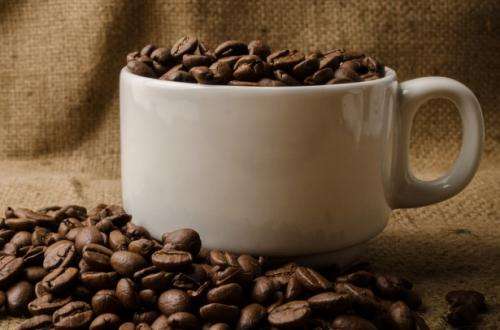High doses of caffeine didn't induce arrhythmias in patients with heart failure

A small randomized clinical trial found that drinking high doses of caffeine did not induce arrhythmias in patients with systolic heart failure and at high risk for ventricular arrhythmias, results that challenge the perception that patients with heart disease and risk for arrhythmia should limit their caffeine intake, according to a new study published online by JAMA Internal Medicine.
The relationship between caffeine consumption and the triggering of arrhythmias remains controversial despite decades of exploration on the matter. Advice to reduce caffeine to high-risk patients is widely recommended in clinical practice, despite a lack of evidence of an arrhythmogenic effect of caffeine on these individuals.
Luis E. Rohde, M.D., Sc.D., of the Federal University of Rio Grande do Sul, Porto Alegre, Brazil, and coauthors conducted a clinical trial to examine the short-term effect of high doses of caffeine in patients with heart failure at increased risk for arrhythmic events.
The study included 51 patients: 25 were assigned to receive decaffeinated coffee with caffeine powder and 26 received decaffeinated coffee with placebo lactose powder. The caffeine or placebo was ingested at one-hour intervals for a total of 500 mg of caffeine or placebo during a five-hour period. The study included a treadmill test one hour after the last ingestion.
The authors found no association between caffeine ingestion and arrhythmic episodes, even during the physical stress of a treadmill test, after 500 mg of caffeine was ingested over a five-hour period, according to the article.
The authors note study limitations. While their results showed no effect of acute caffeine use on arrhythmic events, they note that about 50 percent of their patients were habitual coffee drinkers and this could influence the results because routine users may be less prone to the effects of the substance. Although they believe this to be unlikely, they acknowledge they "cannot ensure that long-term and high-dose use of caffeine is not associated with a proarrhythmic effect in patients with HF [heart failure]," the authors report.
"The acute ingestion of high doses of caffeine did not induce arrhythmias in patients with chronic systolic HF at rest and during a symptom-limited physical exercise. To date, there is no solid evidence to support the common recommendation to limit moderate caffeine consumption in patients at risk for arrhythmias," the authors report.
More information: JAMA Intern Med. Published online October 17, 2016. DOI: 10.1001/jamainternmed.2016.6374




















